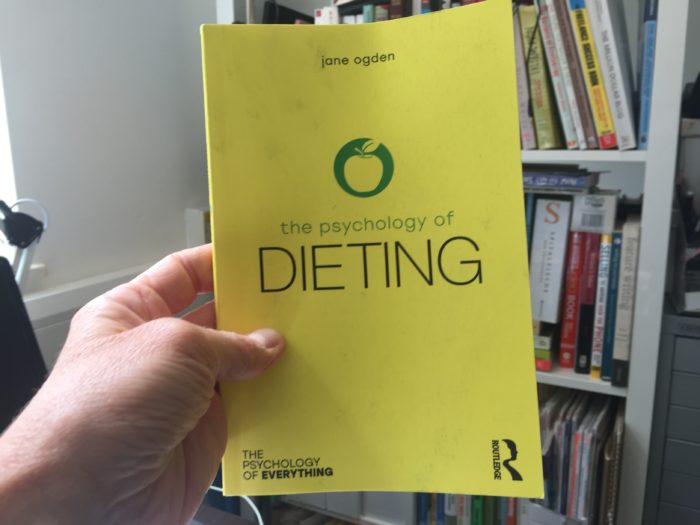
The Psychology of Dieting by Jane Ogden
£7.99, Routledge
Why do some of us become overweight? Why is it so difficult to lose weight? How can we adapt healthy attitudes towards food?
I have been commissioned to write features about weight loss since the 1990s. I have seen a few books on the subject in that time and this is one of the best.
Published by Routledge, it’s a relatively small book but well worth buying, not least because of the credentials of its author. Professor Ogden is Professor of Health Psychology at the University of Surrey. She has researched eating behaviour for nearly 30 years and has distilled what it means to diet well and effectively into this book.
It covers the history of dieting, why people diet and why dieting either succeeds or fails. There’s no quick fixes here just proven ways to lose weight and keep it off. Here are a few of her conclusions and suggestions….
- Most people who diet manage to lose weight initially, however, many show weight regain by a five-year follow up.
- Although dieting is hard, some people do succeed. a long-term study of successful weight loss in the US, the National Weight Control Registry, monitors 10,000 people who have shed pounds and kept them off. Most of these people weighed themselves regularly, ate breakfast, did a lot more exercise and kept to their diet across the week, rather than relaxing their eating at the weekend or on holidays.
- If you want to be slimmer and healthier, surround yourself with people who behave in the desired way to achieve this. Model their behaviour and discount those who eat fattening food and don’t exercise. Spend more time around people who have healthier habits.
- Your new slim-eating tactics will only work when they become a habit. Keep repeating the behaviour change until it becomes your new normal.
- Make positive associations. Put images of disease next to images of unhealthy foods, ind images of healthy lifestyle and put them next to healthy foods. Make yourself associate fat-food with feelings of nausea, fatigue and unpleasant taste and vice versa.
- Successful weight loss is usually triggered by a life event – a bereavement, a health scare. If you don’t have a major event, identify a mini-event and use it to start things off. A birthday, a change of location or routine brought about by a holiday, a comment from those around you. “The trick is to identify one of these changes in your life as a potential life event, think about it, focus on it, write about it or tell others about it and use this as an opportunity for change,’ writes Professor Ogden.
